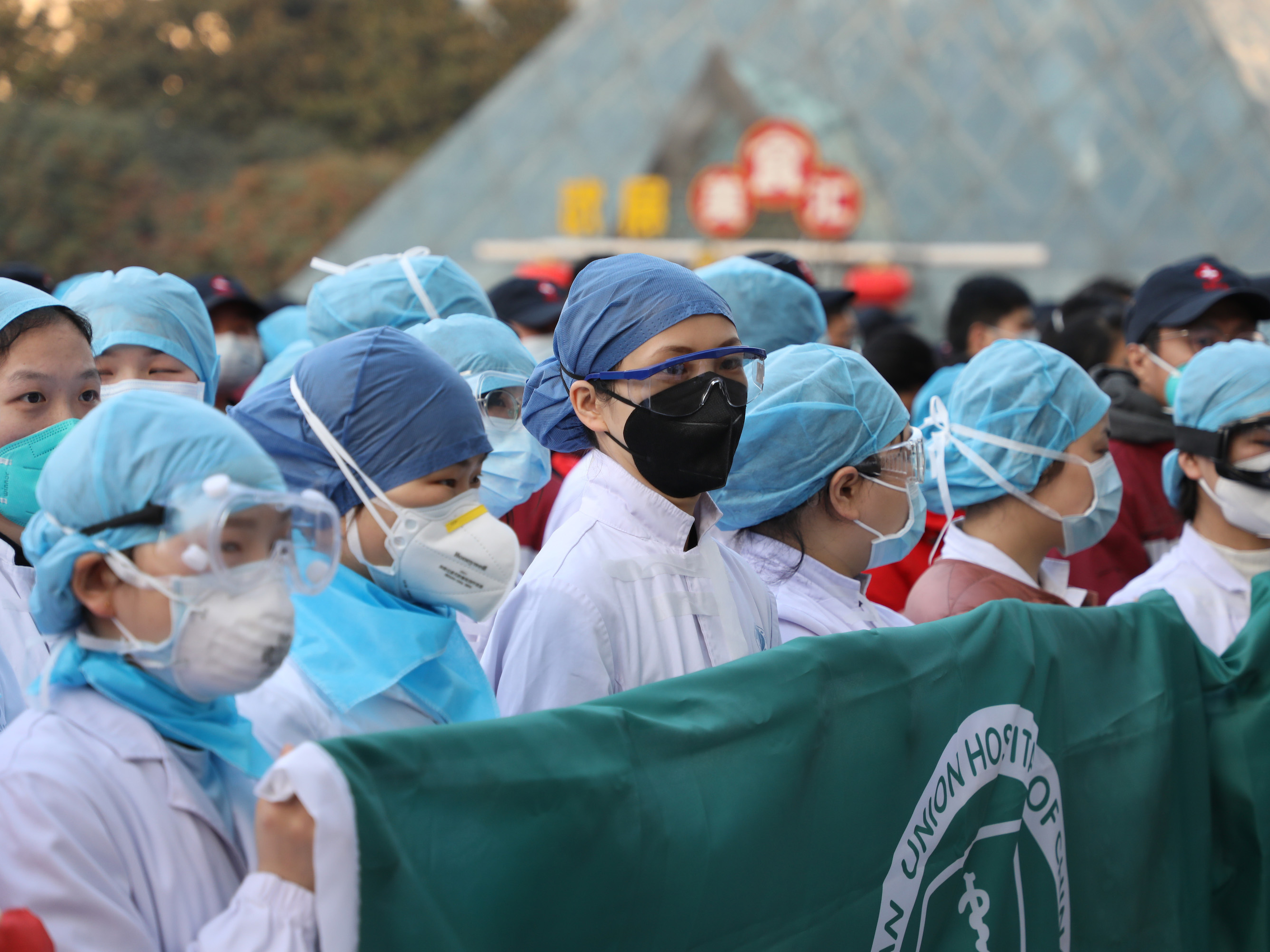- As the coronavirus outbreak continues to grow, thousands of healthcare workers are getting sick.
- China’s National Health Commission announced Monday that more than 3,000 health workers had contracted the new virus. At least eight have died.
- One study found that nearly a third of the patients involved were healthcare workers.
- Visit Business Insider’s homepage for more stories.
Healthcare workers on the front lines of the coronavirus outbreak are getting sick by the thousands.
China’s National Health Commission said on Monday that more than 3,000 healthcare workers nationwide had been infected. At least eight have died, including doctor Li Wenliang, an ophthalmologist who was censored by Chinese authorities after warning colleagues about the new virus.
Last week, Liu Zhiming, a neurosurgeon and director at the Wuchang hospital in Wuhan, died as well. He is the most senior health worker known to have died from the coronavirus. And a 29-year-old doctor named Peng Yinhua, died on Thursday. He had planned to marry his fiancée during the Lunar New Year holiday but postponed the wedding to help treat people with the coronavirus.
Liang Wannian, director general of the commission’s Department of Healthcare Reform, said in a briefing that most of the healthcare-worker infections have occurred in the Hubei province, where the outbreak began. On Monday, the province confirmed 64,287 cases.
More infections among medical staff are likely, he added, because of fatigue and a lack of protective gear.
Research published earlier this month in the Journal of the American Medical Association found that of 138 patients studied at one hospital, 29% were healthcare workers. In one case, a patient admitted to a hospital in Wuhan infected at least 10 medical workers.
Together, these reports highlight a concerning threat both to the individuals working to curb this outbreak and to Wuhan's already overstressed healthcare system.
Healthcare workers at risk
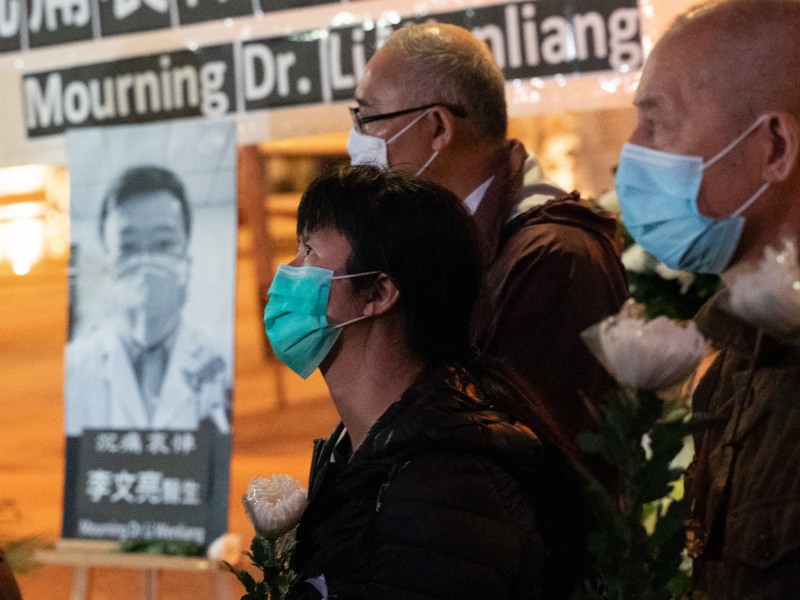
The new number of sick healthcare workers is a big jump the previous total of 1,700, which China's National Health Commission announced on February 14. At that time, the commission said 87.5% of the infected healthcare workers were in the Hubei province.
In total, the coronavirus has infected more than 79,000 people and killed more than 2,600. It has spread to 34 countries outside of China. (For the latest numbers, see Business Insider's live updates here.)
Healthcare workers are particularly vulnerable for a handful of reasons. First, the coronavirus is highly contagious, and medical staff members are exposed to more viral particles than the general public. Second, they're facing shortages of supplies as the tide of patients rises. Third, a combination of stress and long hours could make their immune systems more vulnerable than normal.
A lack of data and information about the new coronavirus is a fourth challenge. Gastrointestinal symptoms, for example, were not initially recognized as potential early indicators. That's the reason one patient infected 10 medical workers: The person came into the hospital with abdominal issues but was placed in a surgical ward, since the symptoms didn't match known coronavirus red flags. Four other patients in the ward then caught the virus, too.
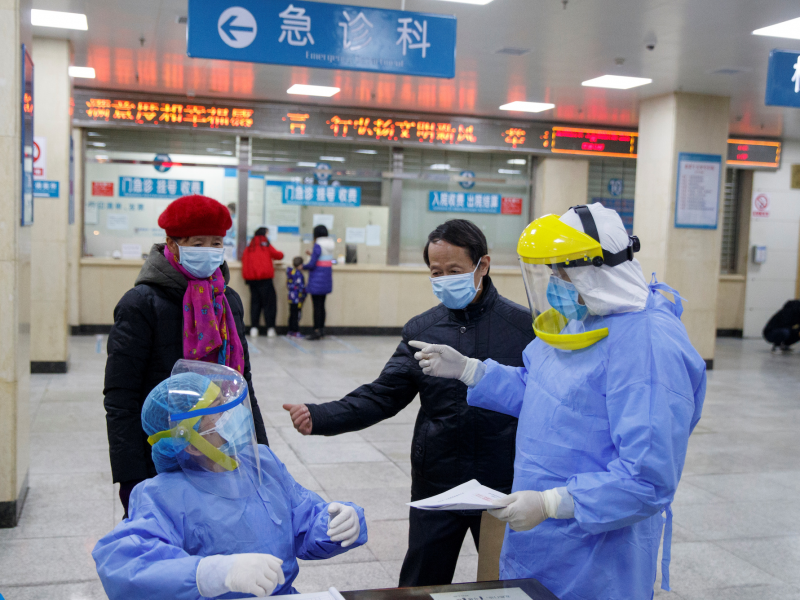
The threat to hospital staff isn't limited to China - two of four new coronavirus cases in the UK are healthcare workers, officials announced earlier this month.
"We are now working urgently to identify all patients and other healthcare workers who may have come into close contact, and at this stage we believe this to be a relatively small number," Yvonne Doyle, medical director of Public Health England, said in a statement.
At the Good Samaritan Hospital in San Jose, California, meanwhile, five employees were sent home and told to self-isolate for about two weeks after they came into contact with a patient later confirmed to have coronavirus.
Infection among healthcare workers has been a problem during outbreaks of SARS (severe acute respiratory syndrome) and MERS (Middle East respiratory syndrome) as well. Around 20% of people who got SARS were medical workers. One highly contagious patient - a "super-spreader" - infected 50 doctors and nurses.
"We've seen this before with MERS, we've seen this before in SARS," Mike Ryan, the executive director of the World Health Organization's Health Emergencies Program, said on February 14. "If you look at the percentage of overall cases, although it's a tragic situation for the health workers ... it is a lower percentage than has occurred in other coronavirus outbreaks."
Overwhelmed by the coronavirus outbreak
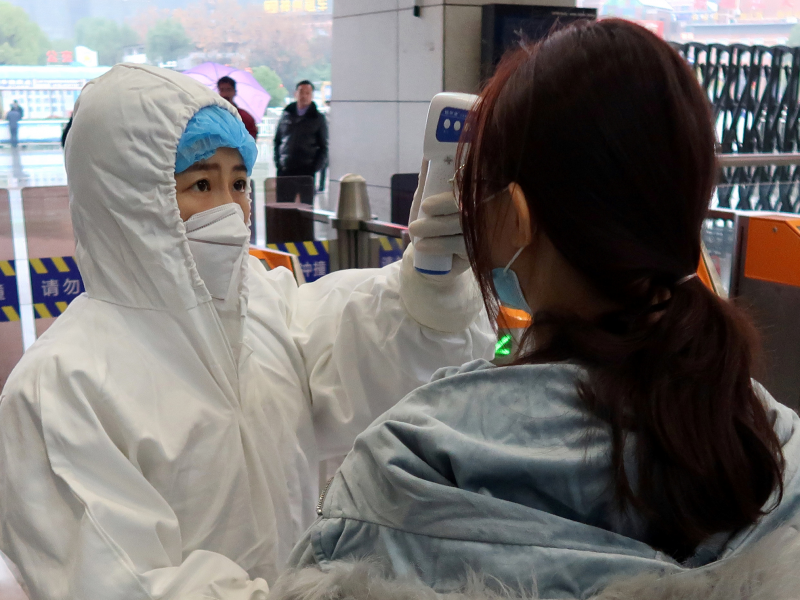
In Wuhan, hospitals have reported running out of beds, testing kits, and protective gear.
Chinese authorities sent 10,000 additional medical workers and more protective gear to the hospitals in the city and rapidly built two new hospitals there. Hotels, sports centers, exhibition spaces, and other local venues are also serving as temporary treatment centers.
But a doctor at one major hospital in China - who was kept anonymous due to fears about losing his job - told the South China Morning Post that curbing the outbreak and treating patients is exponentially more difficult when healthcare workers are getting sick.
"Just a very rough estimate, 100 nurses and doctors can look after 100 ordinary beds and 16 ICU beds," he said. "If they are sick, not only do they occupy 100 beds, but the staff taking care of 100 beds are gone. That means a hospital loses the capacity of 200 beds. That is why the authorities have to keep sending medics over to Wuhan, not only because there are not enough beds, but because of a lack of health doctors and nurses to take care of the sick beds."
Hospitals and healthcare workers in other countries are preparing
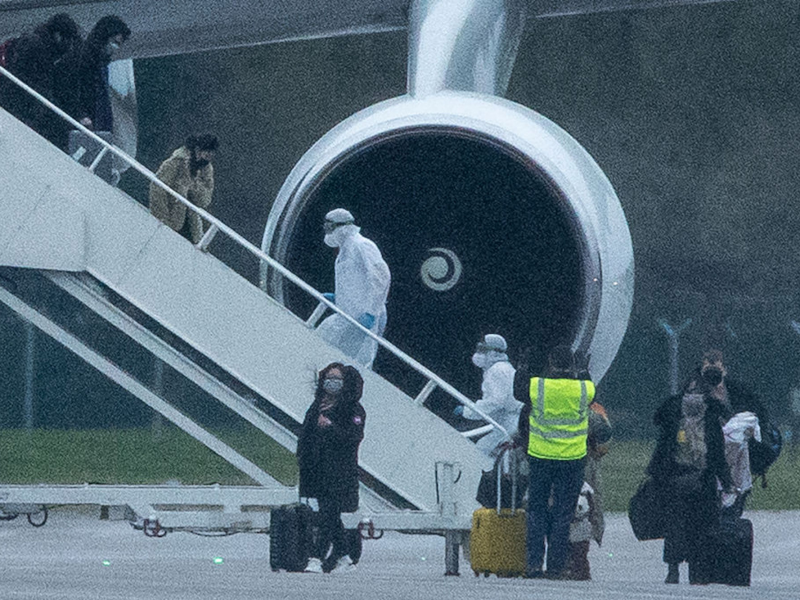
In the US, which has confirmed 35 cases, many hospitals are preparing for more potential coronavirus patients.
"A lot of our patients are from many different countries and travel," Kim Leslie, an emergency-department nursing director at Swedish Hospital in Chicago, previously told Business Insider. "The likelihood of us coming across it is high, so we're trying to have a plan for what to do."
Health authorities worldwide recommend standard preventative measures for healthcare providers: hand-washing, avoiding touching one's face, and wearing a surgical mask when around sick patients.

The US Centers for Disease Control and Prevention also recommends that hospital staff put potentially infected patients in an airborne infection isolation room, wear eye protection, and immediately notify the CDC about any person under investigation.
"It's really hard because so much of US screening is relying on travel history, but it shows the importance of following the standard procedure of basic infection-control practices," Saskia Popescu, an epidemiologist specializing in infection prevention, told Business Insider, adding, "if you could put a mask on everyone who had a cough and fever, that would be huge."
Have you been personally affected by the coronavirus epidemic? Are you a healthcare worker on the front lines of this disease? Have you or someone you know been tested or diagnosed? We want to hear your story. Please email [email protected].
